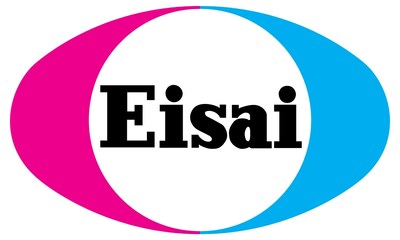"LEQEMBI®" (Lecanemab) Approved for the Treatment of Early Alzheimer's Disease in Mexico
Rhea-AI Summary
Eisai and Biogen announced that LEQEMBI® (lecanemab) has received approval from Mexico's COFEPRIS for the treatment of early Alzheimer's disease (AD). LEQEMBI is the first approved treatment demonstrated to reduce disease progression rate and slow cognitive decline by targeting soluble Aβ aggregates and reducing both Aβ protofibrils and plaques in the brain.
The approval is supported by the global Phase 3 Clarity AD study, which met its primary and key secondary endpoints with statistically significant results. Mexico has approximately 1.3 million people affected by AD, representing 60-70% of all dementia cases. LEQEMBI is already approved and marketed in several countries including the U.S., Japan, China, and others.
Positive
- Received regulatory approval in Mexico, expanding market presence
- First-in-class treatment showing disease progression reduction in early AD
- Strong clinical data from Phase 3 Clarity AD study meeting all endpoints
- Large market opportunity with 1.3 million AD patients in Mexico
- Strategic partnership with co-commercialization agreement between Eisai and Biogen
Negative
- None.
News Market Reaction – BIIB
On the day this news was published, BIIB declined 1.03%, reflecting a mild negative market reaction.
Data tracked by StockTitan Argus on the day of publication.
LEQEMBI selectively binds to soluble Aβ aggregates (protofibrils**), as well as insoluble Aβ aggregates (fibrils) which are a major component of Aβ plaques, thereby reducing both Aβ protofibrils and Aβ plaques in the brain. LEQEMBI is the first approved treatment shown to reduce the rate of disease progression and to slow cognitive and functional decline through this mechanism. LEQEMBI is also approved and being marketed in the
LEQEMBI's approval is based on the large global Phase 3 Clarity AD study. In the Clarity AD study, LEQEMBI met its primary endpoint and all key secondary endpoints with statistically significant results.1,2
Approximately 1.3 million people in
Eisai serves as the lead of LEQEMBI development and regulatory submissions globally with both Eisai and Biogen co-commercializing and co-promoting the product and Eisai having final decision-making authority. Eisai and Biogen will co-commercialize and co-promote LEQEMBI in
* Collectively referred to mild cognitive impairment due to AD or mild AD dementia.
** Protofibrils are believed to contribute to the brain injury that occurs with AD and are considered to be the most toxic form of Aβ, having a primary role in the cognitive decline associated with this progressive, debilitating condition.4 Protofibrils cause injury to neurons in the brain, which in turn, can negatively impact cognitive function via multiple mechanisms, not only increasing the development of insoluble Aβ plaques but also increasing direct damage to brain cell membranes and the connections that transmit signals between nerve cells or nerve cells and other cells. It is believed the reduction of protofibrils may prevent the progression of AD by reducing damage to neurons in the brain and cognitive dysfunction.5
Notes to Editors
1. About lecanemab (LEQEMBI®)
Lecanemab is the result of a strategic research alliance between Eisai and BioArctic. It is a humanized immunoglobulin gamma 1 (IgG1) monoclonal antibody directed against aggregated soluble (protofibril) and insoluble forms of amyloid-beta (Aβ).
Lecanemab is approved and being marketed in the
Lecanemab is under regulatory review in 16 countries and regions, including the European Union. In November 2024, the treatment received a positive opinion from the Committee for Medicinal Products for Human Use (CHMP) of the European Medicines Agency (EMA) recommending approval.
Since July 2020 the Phase 3 clinical study (AHEAD 3-45) for individuals with preclinical AD, meaning they are clinically normal and have intermediate or elevated levels of amyloid in their brains, is ongoing. AHEAD 3-45 is conducted as a public-private partnership between the Alzheimer's Clinical Trial Consortium that provides the infrastructure for academic clinical trials in AD and related dementias in the
2. About the Collaboration between Eisai and Biogen for AD
Eisai and Biogen have been collaborating on the joint development and commercialization of AD treatments since 2014. Eisai serves as the lead of lecanemab development and regulatory submissions globally with Eisai and Biogen co-commercializing and co-promoting the product and Eisai having final decision-making authority.
3. About the Collaboration between Eisai and BioArctic for AD
Since 2005, Eisai and BioArctic have had a long-term collaboration regarding the development and commercialization of AD treatments. Eisai obtained the global rights to study, develop, manufacture and market lecanemab for the treatment of AD pursuant to an agreement with BioArctic in December 2007. The development and commercialization agreement on the antibody lecanemab back-up was signed in May 2015.
4. About Eisai Co., Ltd.
Eisai's Corporate Concept is "to give first thought to patients and people in the daily living domain, and to increase the benefits that health care provides." Under this Concept (also known as human health care (hhc) Concept), we aim to effectively achieve social good in the form of relieving anxiety over health and reducing health disparities. With a global network of R&D facilities, manufacturing sites and marketing subsidiaries, we strive to create and deliver innovative products to target diseases with high unmet medical needs, with a particular focus in our strategic areas of Neurology and Oncology.
In addition, we demonstrate our commitment to the elimination of neglected tropical diseases (NTDs), which is a target (3.3) of the United Nations Sustainable Development Goals (SDGs), by working on various activities together with global partners.
For more information about Eisai, please visit www.eisai.com (for global headquarters: Eisai. Co., Ltd.), us.eisai.com (for
5. About Biogen
Founded in 1978, Biogen is a leading biotechnology company that pioneers innovative science to deliver new medicines to transform patients' lives and to create value for shareholders and our communities. We apply deep understanding of human biology and leverage different modalities to advance first-in-class treatments or therapies that deliver superior outcomes. Our approach is to take bold risks, balanced with return on investment to deliver long-term growth.
The company routinely posts information that may be important to investors on its website at www.biogen.com. Follow Biogen on social media – Facebook, LinkedIn, X, YouTube.
Biogen Safe Harbor
This news release contains forward-looking statements, about the potential clinical effects of lecanemab; the potential benefits, safety and efficacy of lecanemab; potential regulatory discussions, submissions and approvals and the timing thereof; the treatment of Alzheimer's disease; the anticipated benefits and potential of Biogen's collaboration arrangements with Eisai; the potential of Biogen's commercial business and pipeline programs, including lecanemab; and risks and uncertainties associated with drug development and commercialization. These statements may be identified by words such as "aim," "anticipate," "believe," "could," "estimate," "expect," "forecast," "intend," "may," "plan," "possible," "potential," "will," "would" and other words and terms of similar meaning. Drug development and commercialization involve a high degree of risk, and only a small number of research and development programs result in commercialization of a product. Results in early-stage clinical studies may not be indicative of full results or results from later stage or larger scale clinical studies and do not ensure regulatory approval. You should not place undue reliance on these statements.
These statements involve risks and uncertainties that could cause actual results to differ materially from those reflected in such statements, including without limitation unexpected concerns that may arise from additional data, analysis or results obtained during clinical studies; the occurrence of adverse safety events; risks of unexpected costs or delays; the risk of other unexpected hurdles; regulatory submissions may take longer or be more difficult to complete than expected; regulatory authorities may require additional information or further studies, or may fail or refuse to approve or may delay approval of Biogen's drug candidates, including lecanemab; actual timing and content of submissions to and decisions made by the regulatory authorities regarding lecanemab; uncertainty of success in the development and potential commercialization of lecanemab; failure to protect and enforce Biogen's data, intellectual property and other proprietary rights and uncertainties relating to intellectual property claims and challenges; product liability claims; and third party collaboration risks, results of operations and financial condition. The foregoing sets forth many, but not all, of the factors that could cause actual results to differ from Biogen's expectations in any forward-looking statement. Investors should consider this cautionary statement as well as the risk factors identified in Biogen's most recent annual or quarterly report and in other reports Biogen has filed with the
References
- Eisai presents full results of lecanemab Phase 3 confirmatory Clarity AD study for early Alzheimer's disease at Clinical Trials on Alzheimer's Disease (CTAD) conference. Available at: https://www.eisai.com/news/2022/news202285.html
- van Dyck, H., et al. Lecanemab in Early Alzheimer's Disease. New England Journal of Medicine. 2023;388:9-21. https://www.nejm.org/doi/full/10.1056/NEJMoa2212948
- Secretaría de Salud. Enfermedad de Alzheimer, demencia más común que afecta a personas adultas mayores. Oct 2021. https://www.gob.mx/salud/es/articulos/enfermedad-de-alzheimer-demencia-mas-comun-que-afecta-a-personas-adultas-mayores?idiom=e
- Amin L, Harris DA. Aβ receptors specifically recognize molecular features displayed by fibril ends and neurotoxic oligomers. Nat Commun. 2021;12:3451. doi:10.1038/s41467-021-23507-z
- Ono K, Tsuji M. Protofibrils of Amyloid-β are Important Targets of a Disease-Modifying Approach for Alzheimer's Disease. Int J Mol Sci. 2020;21(3):952. doi: 10.3390/ijms21030952. PMID: 32023927; PMCID: PMC7037706.
![]() View original content to download multimedia:https://www.prnewswire.com/news-releases/leqembi-lecanemab-approved-for-the-treatment-of-early-alzheimers-disease-in-mexico-302322515.html
View original content to download multimedia:https://www.prnewswire.com/news-releases/leqembi-lecanemab-approved-for-the-treatment-of-early-alzheimers-disease-in-mexico-302322515.html
SOURCE Eisai Inc.








